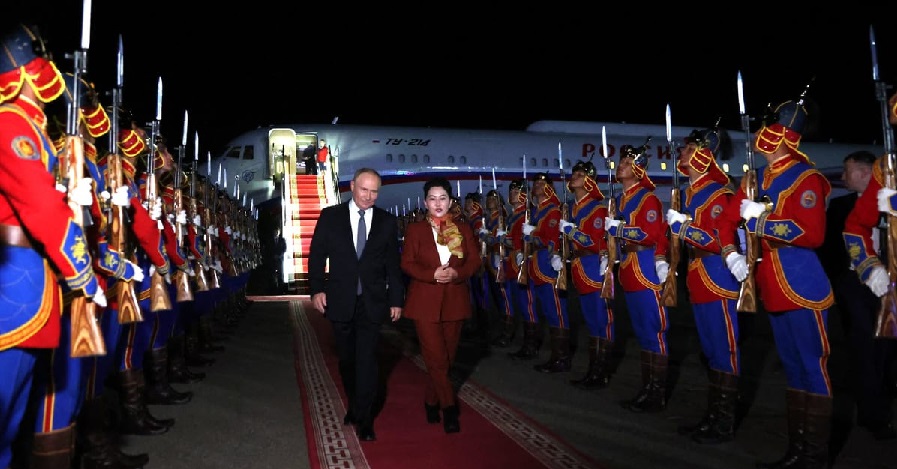
Russian President Vladimir Putin arrived in Mongolia on Tuesday (Sept 3), disregarding an International Criminal Court (ICC) arrest warrant issued last year. This visit marks his first trip to an ICC member country since the court charged him with illegally deporting Ukrainian children amid the ongoing conflict in Ukraine.
Despite appeals from Western nations and Ukraine for Mongolia to arrest Putin, the Russian leader was met with an honor guard upon his arrival. Prior to the visit, the ICC had reminded Mongolia of its legal obligation to detain individuals wanted by the court. On Monday (Sept 2), Kyiv criticized Mongolia, accusing it of “sharing responsibility” for Putin’s alleged “war crimes.”
In Mongolia, there have been small protests against Putin’s visit, including one at Sukhbaatar Square, the capital’s central Genghis Khan Square, where demonstrators held signs reading “Get War Criminal Putin out of here.” Another protest is scheduled for Tuesday.
Will Mongolia face repercussions for not arresting Putin? While it’s unlikely that Ulaanbaatar will face severe penalties for non-compliance, Tamás Hoffmann, a senior research fellow at the Institute for Legal Studies, told Politico that Mongolia might be prosecuted by the ICC for failing to uphold its cooperative duties. He noted that the ICC could refer the matter to the Assembly of Parties, which might condemn Mongolia’s actions under a non-compliance procedure, though this typically results in limited consequences such as symbolic reprimands rather than sanctions.
Mongolia, which has strong cultural and political ties with Russia, has balanced its relations with both Russia and China since the fall of the Soviet Union. Amnesty International warned that the ICC’s credibility could suffer if Mongolia fails to act on the warrant against Putin.











